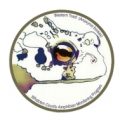Worldwide, many amphibian species are experiencing dramatic declines in abundance and are rapidly disappearing. As a group, amphibians (frogs, salamanders, and the tropical worm-like caecilians) are under assault by habitat loss, emerging deadly diseases, climate change, and introduced predators. Amphibian species that dwell in urban and suburban areas are being squeezed into smaller areas of suitable habitat, where the survivors are isolated from other populations of their species by long distance and inhospitable habitats, including the need to cross busy roadways. Now and in the future, the places where most of us live may be places where just a few of the most tolerant amphibian species can be seen or heard. Understanding the effects of development on amphibian populations before it is too late may allow for a different future.
Within Whatcom County we know surprisingly little about the distribution of amphibian species — where each species occurs — and whether particular populations are in decline or stable, or are at risk. A few species, such as the Western Toad (Anaxyrus boreas), appear to have experienced severe range contractions, disappearing from large areas where they once occurred, but baseline information with which to describe these changes or predict future losses is mostly lacking. The Whatcom County Amphibian Monitoring Program was created to provide this missing baseline information and to help find solutions to maintain amphibian biodiversity in Whatcom County.
To meet our goal we follow a “Citizen Science” approach using a network of citizen volunteers to collect scientific field data. Our program focuses on training volunteers through class and field experience to independently identify amphibian species and collect habitat and population data for public use. This not only allows for the collection of large quantities of data, but also promotes public engagement and awareness of amphibians as fascinating and ecologically important organisms deserving of protection and stewardship by concerned landowners and as part of public policy.

